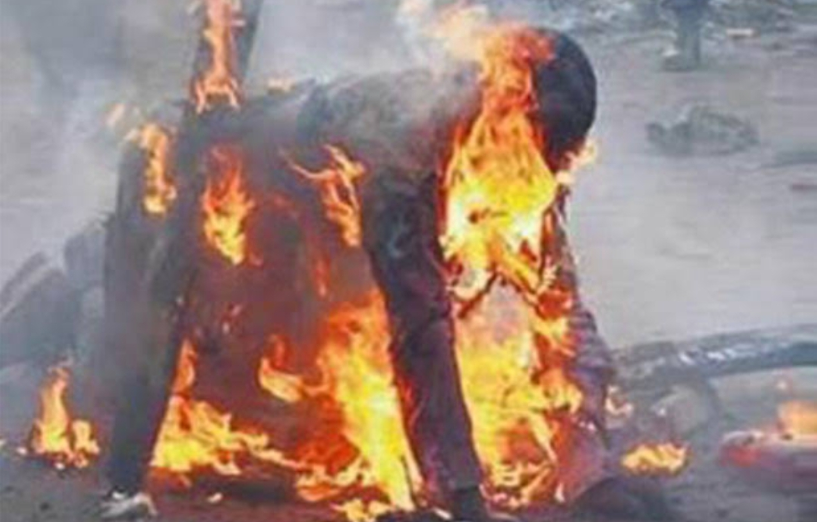Metro
How Muslim Extremist Beat Up a Pastor And Burn Him To Death For Preaching God Has a Son

In the heart of eastern Uganda, where the sun often scorches the earth and the winds carry whispers of tradition, there existed a delicate balance between faiths. Kadungulu village, nestled amid fields of green and gold, was a place where the call to prayer mingled with the hymns of Christianity, and where the horizon seemed to blur the lines between belief and conflict.

John Michael Okero was a man with a voice that echoed the truths he held dear, a preacher unafraid to share his faith in the face of adversity. On that fateful day in February, as the sun dipped low on the horizon, he stood before a crowd gathered in the open air, his words carrying the weight of conviction.
With a gentle cadence, he quoted verses from the Quran about Christ, seeking to bridge the chasm between faiths with the threads of understanding. But in the sea of faces before him, there lurked shadows of discontent, whispers of dissent that would soon erupt into violence.
A figure emerged from the crowd, a man known only as Shakuuru, his features contorted with rage as he seized the microphone from Okero’s grasp. What began as a disagreement over interpretation swiftly escalated into a storm of fury. Iron bars, stones, and sticks became instruments of destruction, raining down upon Okero as accusations of blasphemy filled the air.
In the chaos that ensued, the boundaries of faith blurred into a maelstrom of hatred and fear. As Okero lay battered and broken, the mob’s anger turned to frenzy. They carried out their final act of defiance, consigning his body to flames with chants that echoed across the village, a macabre symphony of intolerance.
The news of Okero’s tragic demise spread like wildfire, igniting outrage and sorrow in equal measure. Yet amid the grief, there emerged a beacon of hope. For in the aftermath of darkness, there were those who refused to be silenced, who raised their voices in defiance of oppression.
As the authorities launched a manhunt for the perpetrators, the echoes of Okero’s message reverberated through the land. His legacy, etched in the hearts of those who dared to dream of a world where faith could unite rather than divide, served as a testament to the enduring power of belief.
In the hushed whispers of Kadungulu village, where the winds carried the echoes of tragedy, there remained a flicker of resilience—a flame of hope that refused to be extinguished. And though the road ahead was fraught with uncertainty, the spirit of John Michael Okero lived on, a testament to the indomitable strength of the human soul.
